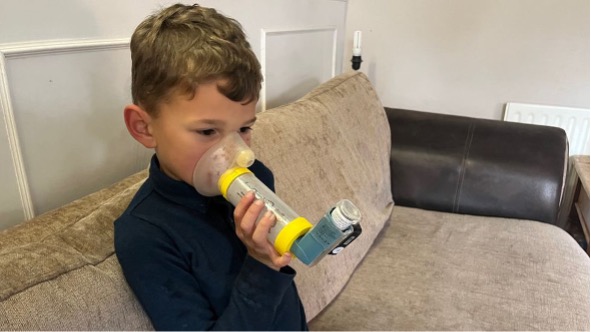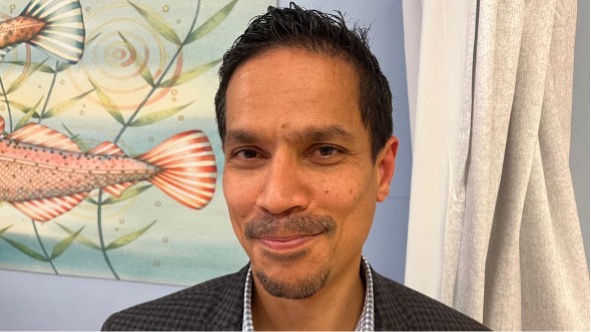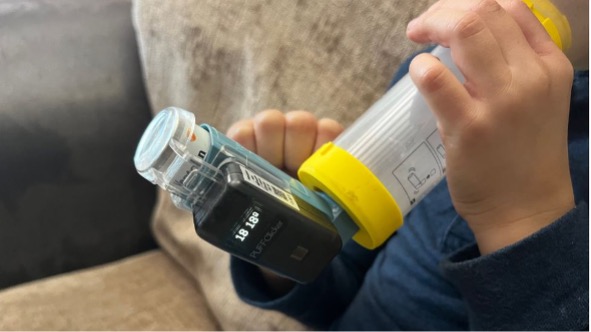This post was originally published on www.bbc.co.uk. © BBC Look East and Nikki Fox (Health Correspondent for BBC Look East).

Seven-year-old Oscar has been taking part in the pilot project
Two Norfolk hospitals have teamed up with a technology company to trial a phone app that aims to reduce asthma attacks in children and young people.
The Norfolk and Norwich University Hospital and the James Paget University Hospital are providing patients with an inhaler tracker that connects to the app which then monitors their lungs.
The app then alerts patients when they need to take action to stop an attack.
Dr Bikalpa Neupane said the trial had "huge potential" to prevent admissions.
Dr Bikalpa Neupane said he hoped the project would enable families to "self-manage" asthma better
The consultant paediatrician at the Norfolk and Norwich hospital said the app provided "powerful data which allows us to intervene when needed".
The data is sent to clinicians who can review it remotely and act when necessary.
The two hospitals have worked with Cambridgeshire-based company Aseptika, as well as a consultancy firm and the Eastern Academic Health Science Network on the project.
The trial has been opened to children and young people who have been taken to hospital after an asthma attack in the last 12 months.
The inhaler tracker can show patients how well their lungs are working
Seven-year-old Oscar, from Gressenhall, has been taking part in the pilot project. The app sends a notification when he needs to use his inhaler.
Mother, Jodie, said in the past he could need hospital treatment for asthma up to four times a year.
"On a bad day when he needs admitting he can barely walk or talk," she said.
"It's usually bad over the winter months and he can be in hospital for several days, which means he misses school.
"Because the information is going straight to the hospital, they'll be able to pick up on things sooner which will result in less hospital stays and he will have more time in school."
Dr John Chapman, consultant paediatrician at the James Paget University Hospital, said: "This is a very exciting project which has the potential to change the way that we look after children with asthma.
"Remote monitoring will allow us to identify which of our patients are doing well and which ones need more of our attention.
"This should reduce asthma attacks and visits to our outpatient clinics, allowing these children to get on with their lives."
